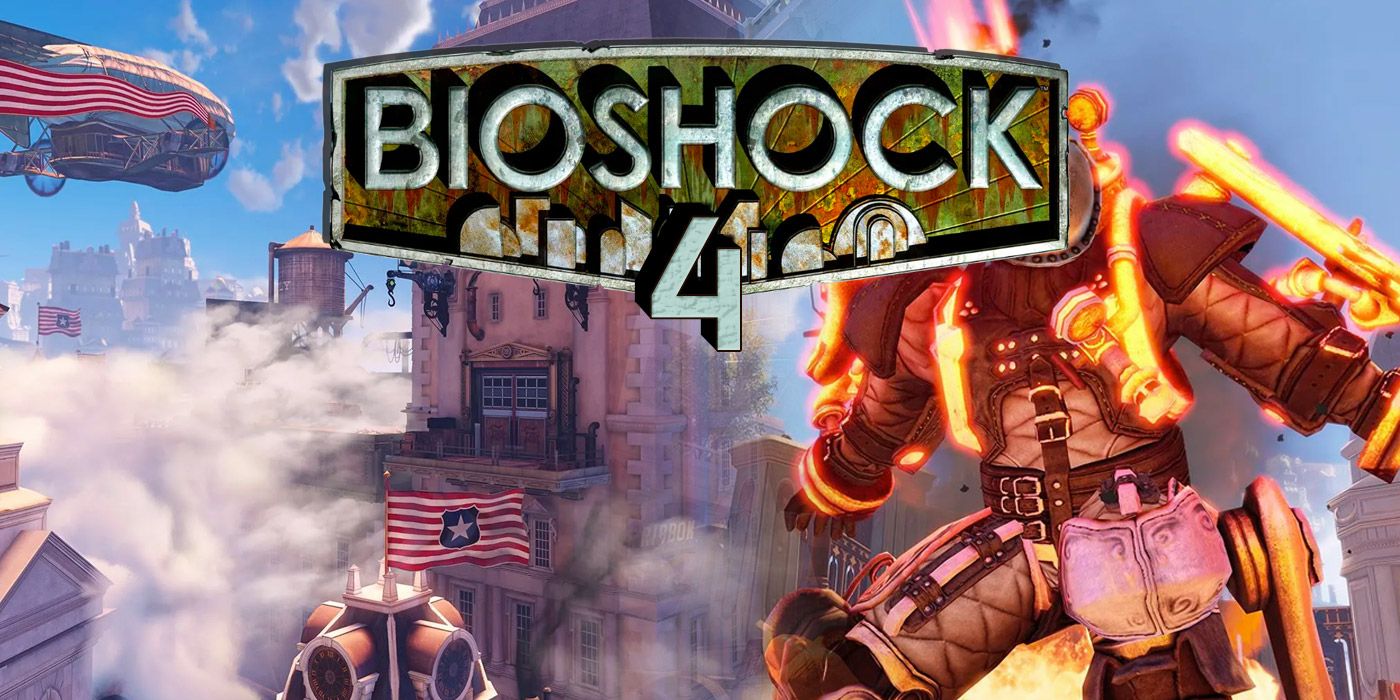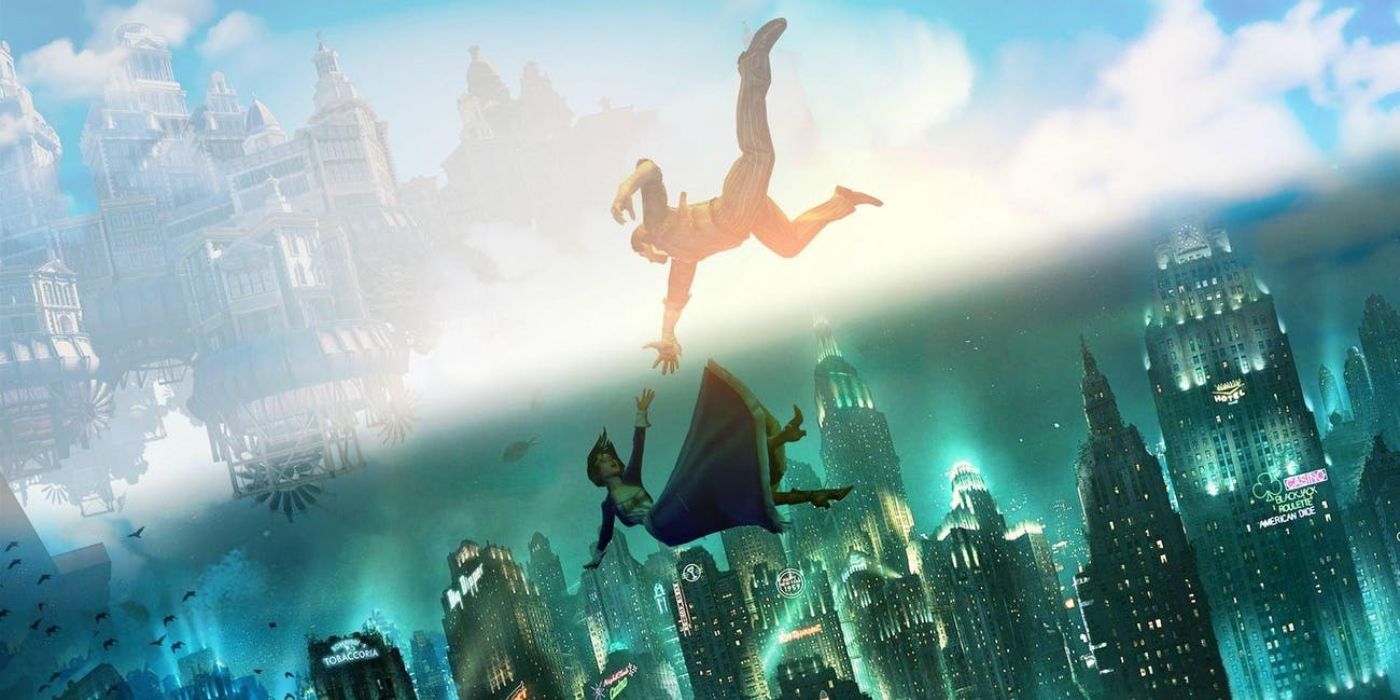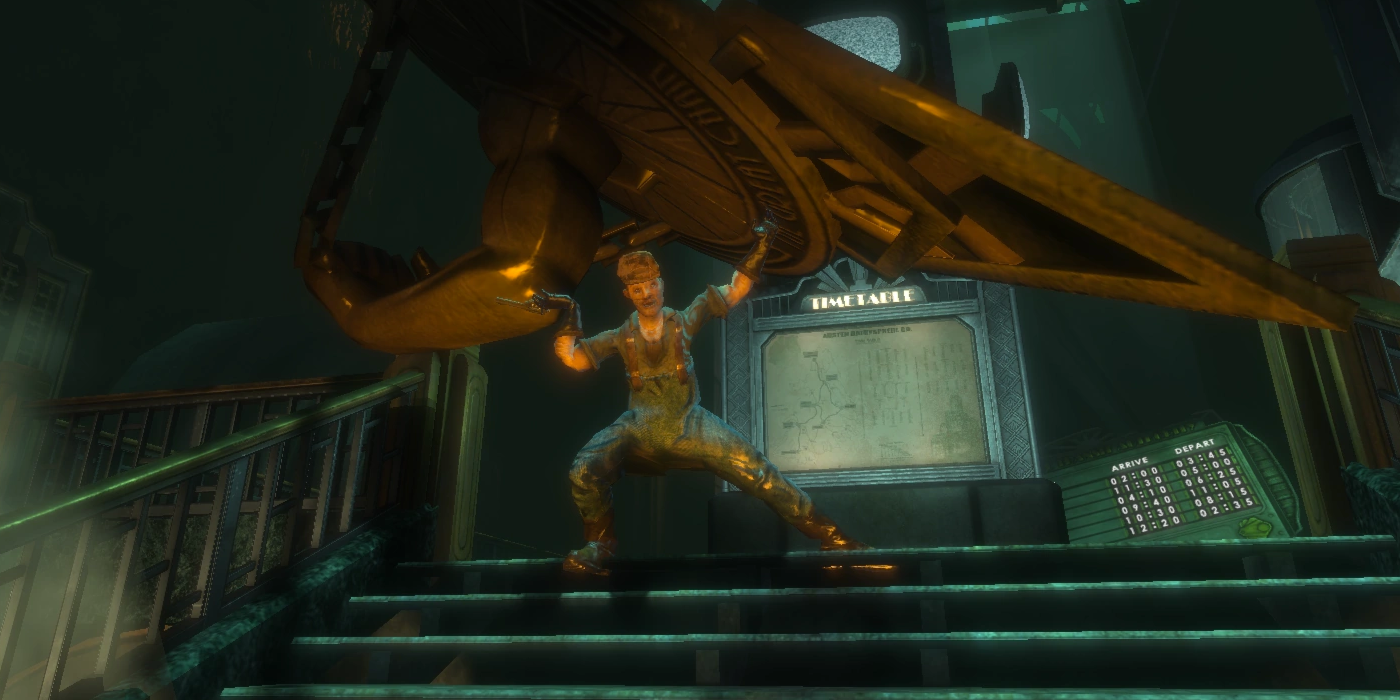BioShock 4 has been confirmed to be in development at an all-new studio, Cloud Chamber, set up by 2K to tackle the next chapter of the dystopian sci-fi franchise. The last game, BioShock Infinite, established that it was part of the same multiverse as the original, even going so far as to say that “There's always a lighthouse. There's always a man. There's always a city.”
After BioShock Infinite hit players with such a huge revelation regarding the BioShock universe, BioShock 4 should be a spiritual successor, not a direct sequel. Here are some of the reasons why, as well as problems BioShock 4 could have trying to directly follow from Infinite in the same canon.
BioShock's Multiverse
When BioShock Infinite first released many fans of the franchise were under the impression that it was a spiritual successor to the first two BioShock games, rather than being set in the same continuity. The developers encouraged this. The opening of the game is a direct parallel of the opening of the original BioShock.
In the first game the player finds themselves swimming from a plane crash towards a lighthouse and descending to the dystopian Objectivist city of Rapture after a disastrous New Years Eve reduced it to a haunting labyrinth of tunnels filled with splicers and Big Daddies. In the beginning of Infinite, the player rows towards a similar lighthouse, only this time they ascend to Columbia, a city in the sky in the style of an early 20th century World Fair, along with all the racism and intense nationalism of the time.
It is only near the end of the game that players realize that these similarities are not just references but have a place in-universe, with Elizabeth revealing that Booker DeWitt and Columbia are just one variant of Jack and Rapture in another reality out of an infinite number of possible universes.
BioShock 4's Big Challenge
The problem for BioShock 4 is that it would either have to commit to playing out the same structure again with players knowing the twist and the roles each feature is fulfilling in the multiverse, or it would have to abandon the continuity of BioShock Infinite to tell a totally new story, just as many fans of BioShock assumed Infinite was doing. The latter choice, ultimately, would make for a more original and unexpected story that players could truly immerse themselves in without it getting drowned out by the meta narrative.
This doesn’t mean that BioShock won’t include a man, a lighthouse, and a city. However, it would mean that the game didn’t have to commit to any of those things and that Cloud Chamber could have greater flexibility in its storytelling. It would also make far more sense for players entering BioShock 4 as their first game in the series, without it being so heavily dependent on understanding the story of Infinite.
When BioShock first began its exploration of an Objectivist nightmare in Andrew Ryan’s Rapture, few would have expected the next game to take on a multiverse plotline. The only way BioShock 4 can continue to surprise fans of the franchise is to make another radical leap, but in order to do so, the multiverse which includes the first three games will need to be left behind for a continuity which will afford the game’s new developers the freedom to tell a brand new story with its own twists, turns, and the series trademark move of putting a political philosophy under the microscope.
BioShock 4 is reportedly in development by Cloud Chamber Studio



